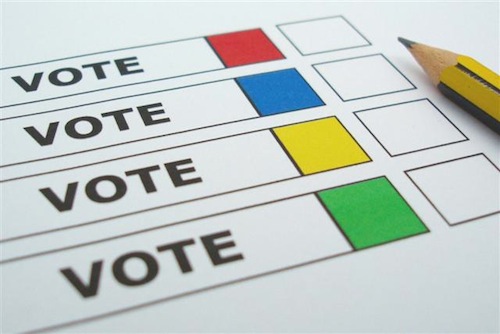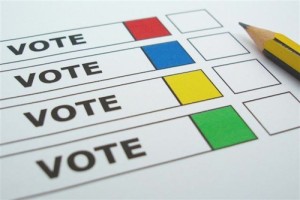Sunday was the 25th anniversary of the Americans with Disability Act of 1990, so in the Sunday Poll I asked what should qualify as a disability. Before the results, here is information from a national poll: .
Strong majorities of Americans believe vision loss, blindness, or other permanent vision impairments (88%); cerebral palsy (83%); hearing loss, deafness, or other permanent hearing impairments (79%); multiple sclerosis (78%); autism (68%); and epilepsy (68%) should qualify as disabilities.
Over half also believe speech and language disorders (57%), learning disabilities (54%) and cancer (52%) should qualify, though only minorities of older Americans and Republicans are behind these particular conditions being considered disabilities:
Speech and language disorders: 41% of Matures, 47% of Republicans
Learning disabilities: 44% of Matures, 46% of Republicans
Cancer: 48% of Baby Boomers, 41% of Matures, 45% of Republicans
Majorities of Millennials (57%) and Democrats (54%) believe schizophrenia should qualify, while lower percentages of other generations (44% Gen Xers, 41% Baby Boomers, 27% Matures) and political persuasions (37% Republicans, 42% Independents) say the same, bringing the total support for this condition qualifying to 46%.
Three in ten Americans believe depression (29%) should qualify, while just over two in ten say the same of migraine headaches (22%), 17% say the same of morbid obesity and 16% believe anorexia or bulimia should qualify. One in ten feel that drug addiction (10%) or alcoholism (9%) should qualify, while 5% say the same of compulsive gambling.
Perhaps not surprisingly, those who say they or someone else in their household faces an emotional or mental disability are especially likely to believe autism (75%), schizophrenia (67%) and depression (57%) should be considered qualifying conditions. (The Harris Poll: Overwhelming Public Support For the Americans with Disabilities Act, But Disagreements Exist on What Should Qualify as a Disability)
The free online poll software I use here doesn’t let me get into such detail. When reading the results below keep in mind people could select 1-16 answers. I don’t know how many people voted — my guess is 22. If so that would mean 100% think vision loss is a qualifier for disability. I’ve added a percentage in {0%} to indicate the relative support.
Q: Which of the following do you think should qualify as a disability under the Americans with Disabilities Act? (check all that apply)
- Vision loss, blindness, vision impairment 22 [12.02%] {100%}
- TIE 20 [10.93%] {90.9%}
- Multiple sclerosis
- Cerebral palsy
- Hearing loss, deafness, permanent hearing impairments 18 [9.84%] {81.8%}
- Epilepsy 17 [9.29%] {77.3%}
- Autism 14 [7.65%] {63.6%}
- Schizophrenia 13 [7.1%] {59.1%}
- Speech & language disorders 12 [6.56%] {54.5%}
- TIE 10 [5.46%] {45.5%}
- Learning disabilities
- Cancer
- Anorexia or bulimia 6 [3.28%] {27.3%}
- TIE 5 [2.73%] {22.7%}
- Morbid obesity
- Depression
- TIE 4 [2.19%] {18.2%}
- Drug addiction
- Alcoholism
- Compulsive gambling 3 [1.64%] {13.6%}
- Unsure/no answer 0 [0%]
The key is what makes it so you can’t do your current job, or another job. I’m not in a position to tell someone who is, say clinically depressed, they should be able to work. Besides, I’m too busy worrying about a potential 19% cut in 2016.
— Steve Patterson


 On January 2, 2016 the 5-year smoking ban exemption some small bars have claimed will expire. Now that the exemptions are nearing their expiration date some want to amend the 2009 law.
On January 2, 2016 the 5-year smoking ban exemption some small bars have claimed will expire. Now that the exemptions are nearing their expiration date some want to amend the 2009 law.